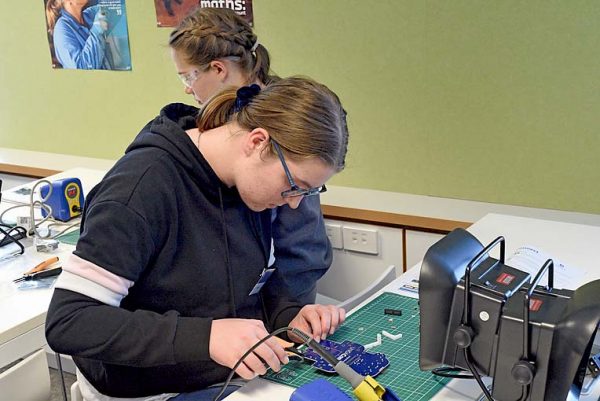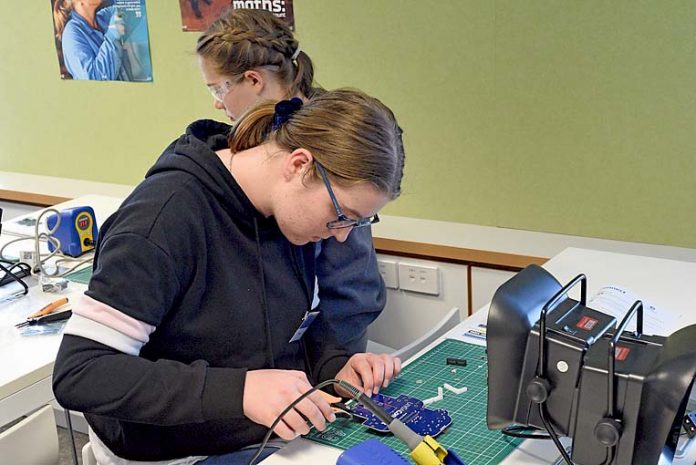
THE next generation of scientists were put to the test at the OneFortyOne Mount Gambier Science experience, immersing themselves in a number of STEM activities at the University of South Australia (UniSA) last week.
Dozens of students from across the Limestone Coast were involved in the three-day program and were tasked with investigating how they could improve living conditions in developing countries.
UniSA Connect staff member Anita Trenwith said the students were tasked with coming up with a solution to the problem.
“You could tell they were really enjoying the process of how they could use those STEM skills to improve living conditions,” she said.
“For example when they are building their soldering kits, it is sort of a self-paced learning, so they are working through and constructing it at their own speed.
“This really caters for their different skill levels.”
Ms Trenwith said the program started with an induction, before moving on to energy efficient housing designs and a focus on access to clean water.
“We started off with the house design, making them out of cardboard boxes and the students had to assess different conditions to work out whether adding things such as verandahs would be favourable or if putting thermal mass inside the house would improve it,” she said.
“It’s quite interesting to see what they are looking at during their investigation and what they are testing for.”
Electronics and programming was the second focus of the event with students tasked with working out how technology can be used in developing countries.
“They get to make a programmable input/output board and they actually get to learn some coding and look at how they can control that,” she said.
“We look at how that technology is being used in these countries.”
At the conclusion of the program, the students were asked to showcase their findings in formal presentations.








